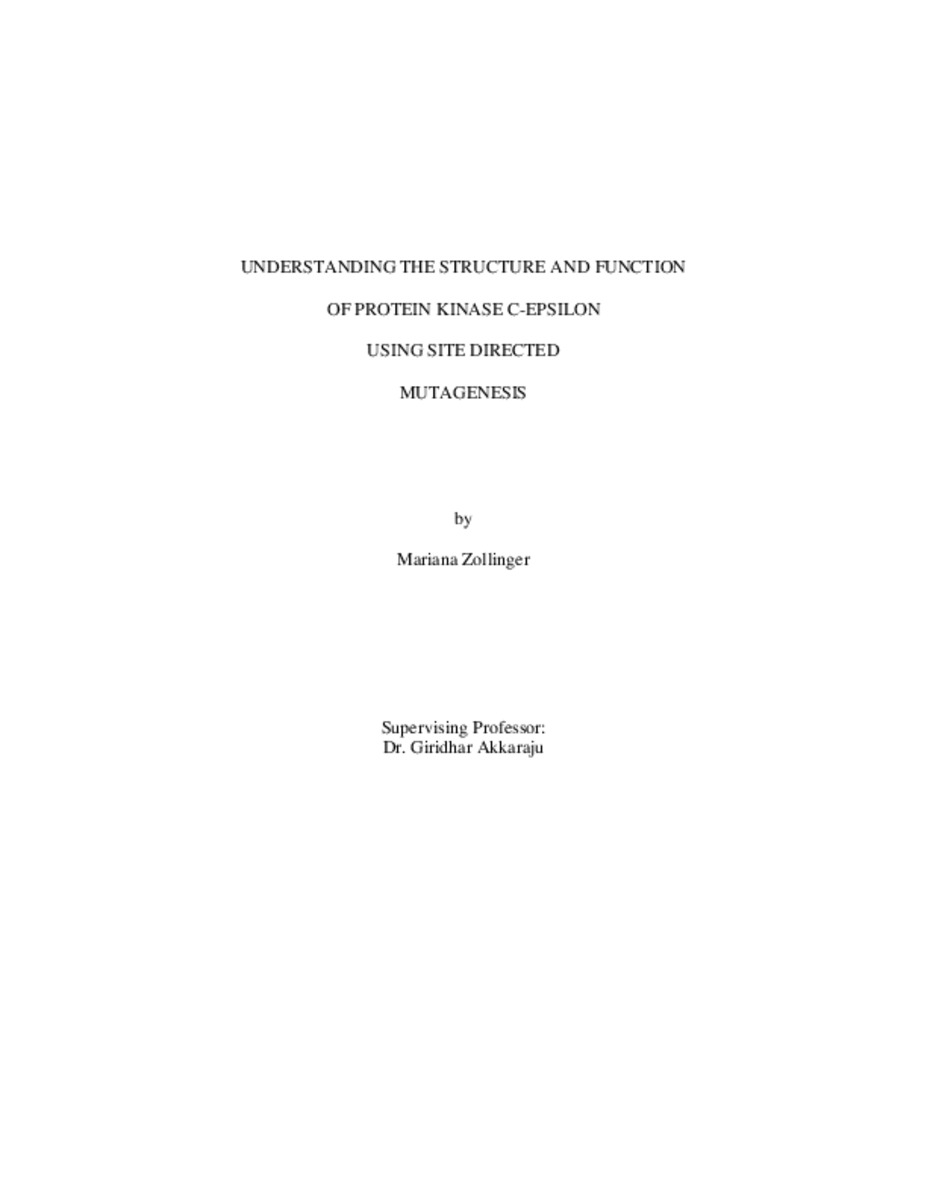Understanding the structure and function of protein kinase C-Epsilon using site directed mutagenesisShow full item record
| Title | Understanding the structure and function of protein kinase C-Epsilon using site directed mutagenesis |
|---|---|
| Author | Zollinger, Mariana |
| Abstract | This research is focused on gaining a better understanding of PKC-epsilon a calcium-dependent protein kinase involved in a wide range of cellular functions including cell proliferation, survival, and apoptosis. The interest in PKC-epsilon derives from the discovery of a de novo mutation in the PKC-epsilon gene in patients suffering from SHORT syndrome. This syndrome is a debilitating disorder characterized by short stature, hyper extensibility, ocular depression, Rieger anomaly, and teething decay. This project involved recapitulating the naturally occurring de novo mutations in vitro as well as determining if other mutations in PKC-epsilon could cause similar disease-state phenotypes. Using a technique known as Site Directed Mutagenesis mutations were introduced into the PKC-epsilon gene and the effects of these mutations on the protein expression were assessed. This mutational analysis will help identify the regions of PKC-epsilon that are vital for its function. This will help elucidate the effect of the same mutations in patients and could help correlate with the severity of disease. Obtaining a clearer picture of the different regions of the PKC-epsilon protein allows for future studies to focus on successfully fixing these regions when they become damaged and could therefore be used to help patients with SHORT syndrome. |
| Link | https://repository.tcu.edu/handle/116099117/61385
https://doi.org/10.18776/tcu/mcnair/2023/61385 |
| Department | Biology McNair Program |
| Advisor | Akkaraju, Giridhar |
Files in this item
This item appears in the following Collection(s)
- 2023 Issue [7]
© TCU Library 2015 | Contact Special Collections |
HTML Sitemap



